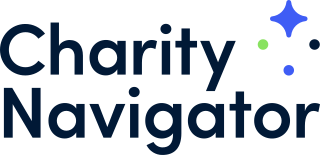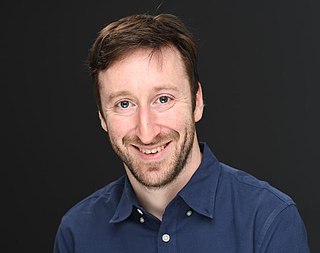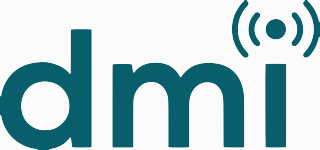
Charity Navigator is a charity assessment organization that evaluates hundreds of thousands of charitable organizations based in the United States, operating as a free 501(c)(3) organization. It provides insights into a nonprofit's financial stability, adherence to best practices for both accountability and transparency, and results reporting. It is the largest and most-utilized evaluator of charities in the United States. It does not accept any advertising or donations from the organizations it evaluates.
Candid is an information service specializing in reporting on U.S. nonprofit companies. In 2016, its database provided information on 2.5 million organizations. It is the product of the February 2019 merger of GuideStar with Foundation Center.

Dustin Aaron Moskovitz is an American billionaire internet entrepreneur who co-founded Facebook, Inc. with Mark Zuckerberg, Eduardo Saverin, Andrew McCollum and Chris Hughes. In 2008, he left Facebook to co-found Asana with Justin Rosenstein. In March 2011, Forbes reported Moskovitz to be the youngest self-made billionaire in the world, on the basis of his then 2.34% share in Facebook. As of October 2023, his net worth is estimated at US$18.0 billion by the Bloomberg Billionaires Index.
Giving What We Can (GWWC) is an effective altruism-associated organisation whose members pledge to give at least 10% of their income to effective charities. It was founded at Oxford University in 2009 by the philosopher Toby Ord, physician-in-training Bernadette Young, and fellow philosopher William MacAskill.

Holden Karnofsky is an American nonprofit executive. He is a co-founder and Director of AI Strategy of the research and grantmaking organization Open Philanthropy. Karnofsky co-founded the charity evaluator GiveWell with Elie Hassenfeld in 2007 and is vice chair of its board of directors.
GiveDirectly is a nonprofit organization operating in low income areas that helps families living in extreme poverty by making unconditional cash transfers to them via mobile phone. GiveDirectly transfers funds to people in Bahamas, Bangladesh, DRC, Liberia, Kenya, Malawi, Morocco, Mozambique, Nigeria, Rwanda, Togo, Turkey, Uganda, USA, and Yemen.
Good Ventures is a private foundation and philanthropic organization in San Francisco, and the fifth largest foundation in Silicon Valley. It was co-founded by Cari Tuna, a former Wall Street Journal reporter, and her husband Dustin Moskovitz, one of the co-founders of Facebook. Good Ventures adheres to principles of Effective Altruism and aims to spend most or all of its money before Moskovitz and Tuna die. Good Ventures does not have any full-time staff, and instead distributes grants according to recommendations from Open Philanthropy.
The Center for High Impact Philanthropy (CHIP) is a center at the School of Social Policy and Practice at the University of Pennsylvania in the United States focused on high impact philanthropy, both in the US and internationally. The Center translates the best available evidence in areas such as education and early childhood development, disaster relief, poverty, democracy, and public health into actionable guidance and educational programs for those looking to make a difference with their giving.
The Mulago Foundation is a private foundation focused on high impact philanthropy: investing in charities and philanthropic opportunities that have the highest impact. The foundation was originally envisioned by Rainer Arnhold, a San Francisco pediatrician and philanthropist, who taught at Mulago Hospital, Uganda. The foundation was officially created by his brother Henry Arnhold after Rainer Arnhold's death in 1993.
Effective altruism (EA) is a 21st-century philosophical and social movement that advocates "using evidence and reason to figure out how to benefit others as much as possible, and taking action on that basis". People who pursue the goals of effective altruism, sometimes called effective altruists, may choose careers based on the amount of good that they expect the career to achieve or donate to charities based on the goal of maximising positive impact. They may work on the prioritization of scientific projects, entrepreneurial ventures, and policy initiatives estimated to save the most lives or reduce the most suffering.
Earning to give involves deliberately pursuing a high-earning career for the purpose of donating a significant portion of earned income, typically because of a desire to do effective altruism. Advocates of earning to give contend that maximizing the amount one can donate to charity is an important consideration for individuals when deciding what career to pursue.

Development Media International (DMI) is a non-governmental organization with both non-profit and for-profit arms that "use[s] scientific modelling combined with mass media campaigns in order to save the greatest number of lives in the most cost-effective way".

Doing Good Better: Effective Altruism and How You Can Make a Difference is a 2015 book by William MacAskill that serves as a primer on the effective altruism movement that seeks to do the most good. It is published by Random House and was released on July 28, 2015.

Founders Pledge is a London-based charitable initiative, where entrepreneurs commit to donate a portion of their personal proceeds to charity when they sell their business. Inspired by effective altruism, the mission of Founders Pledge is to "empower entrepreneurs to do immense good".
The Nonprofit Marketplace Initiative (NMI) was an initiative of the Effective Philanthropy Group of the Hewlett Foundation launched in 2006. Its closure was announced in the Chronicle of Philanthropy in April 2014.

The Centre for Effective Altruism (CEA) is an Oxford-based organisation that builds and supports the effective altruism community. It was founded in 2012 by William MacAskill and Toby Ord, both philosophers at the University of Oxford. CEA is part of Effective Ventures, a federation of projects working to have a large positive impact in the world.
Open Philanthropy is a research and grantmaking foundation that makes grants based on the doctrine of effective altruism. It was founded as a partnership between GiveWell and Good Ventures. Its current chief executive officer is Alexander Berger, and its main funders are Cari Tuna and Dustin Moskovitz. Dustin says that their wealth, worth $11 billion, is "pooled up around us right now, but it belongs to the world. We intend not to have much when we die."
Animal Charity Evaluators (ACE), formerly known as Effective Animal Activism (EAA), is a US-based charity evaluator and effective altruism-focused nonprofit founded in 2012. ACE evaluates animal charities and compares the effectiveness of their different campaigns and strategies. The organization makes charity recommendations to donors once a year. Its stated purpose is finding and promoting the most effective ways to help animals.
Charity assessment is the process of analysis of the goodness of a non-profit organization in financial terms. Historically, charity evaluators have focused on the question of how much of contributed funds are used for the purpose(s) claimed by the charity, while more recently some evaluators have placed an emphasis on the cost effectiveness of charities.
An exit grant is a grant made with the clear expectation that the donor will not make any further similar grants to the donee.






